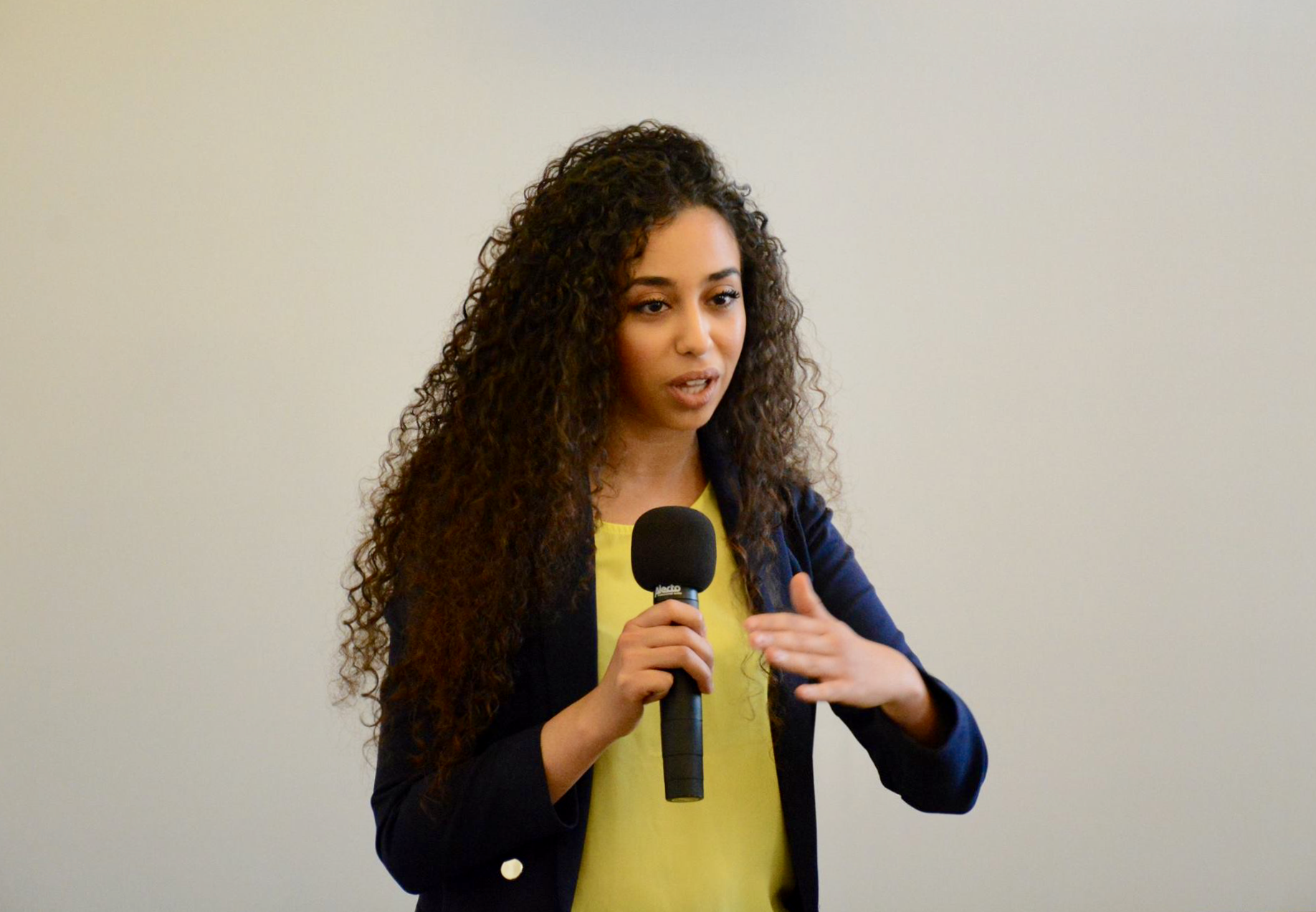25 years after Beijing, where are women’s rights in the Arab States?
Date:

Sana Afouaiz is an award-winning gender activist, and public speaker on feminism and women’s issues. She is the author of the book “Invisible Women of the Middle East” Currently, she is the Director of Womenpreneur organization with a community of 10,000 members across 20 countries, aimed at advancing women’s entrepreneurship and participation in technology, innovation and society in the MENA region. Sana is a member of UN Women’s Gender Innovation Agora.
The Beijing Platform for Action (BPfA) was adopted in 1995 with the aim of championing women’s rights. Although member States agreed on a set of recommendations to achieve gender equality and human dignity, 25 years later, the goals of the Beijing Platform are still far from being fully realized.
Women’s rights are still a sensitive topic in the Arab States. Despite the ratification of the BPfA, women’s rights are still being violated, which makes the region rank as one of the lowest in the world, according to the Global Gender Gap Report.
Forms of inequality differ from one country to another. Some countries like Tunisia, Morocco, and Lebanon have made adjustments to their national policies, from introducing laws criminalizing marital rape, to changing the Personal Status Law, and recognizing the importance of women’s economic and political participation. But overall the gender gap in the region persists. The situation is so serious that it will take us 356 years to become equal societies![1]
One of the challenges in protecting women’s human rights in the region is that they are not always seen as individuals but as members of a family system that tends to give power to men. In this context, women have to deal with prejudice and discrimination on a daily basis.
Many laws and policies in the region discriminate against women. For example, women are deprived of equal rights in cases of marriage, divorce, custody of children, transferring nationality to their children, and inheritance. In extreme cases, the law in some countries defends so-called “honour killings”.
Just recently, the suspected "honour killing" of a young Palestinian woman, Israa Ghrayeb, provoked outrage among activists in the country and across the region, generating online protests against gender-based violence and the culture of acceptance of these criminal acts against women.
Sadly, honour killings against women continue to occur in countries across the region, which shows how legislation and social norms are failing to protect women from violence. Discrimination continues in other forms as well. Women’s agency is restricted and sometimes completely suppressed, as some women in the region still need male ‘permission’ to apply for passports, choose where to live, apply for national identity cards, travel abroad, etc. These are basic rights but not all women are able to enjoy them.
There is still so much work to be done to fully realize the Beijing goals in our region. Currently, the implementation of gender-responsive policies is limited by reservations, discriminatory legal systems, patriarchal movements and lack of political will. The region more than ever needs to revisit and question the perspectives on gender that have enabled and sustained inequality in our societies.
Women’s rights are not a charity nor a privilege, they are human rights, and only by recognizing this we will be able to progress.
Disclaimer: The information and views expressed in our Beijing+25 Youth Voices page by youth from the Arab States region are those of the authors and do not necessarily represent the views of UN Women, the United Nations, or any of its affiliated organizations.
------------------------------------------------------------------------------
[1]https://www.weforum.org/agenda/2016/10/gender-gap-report-2016-equality-sliding-backwards/